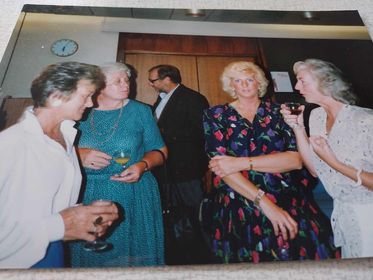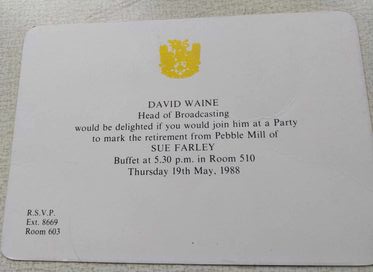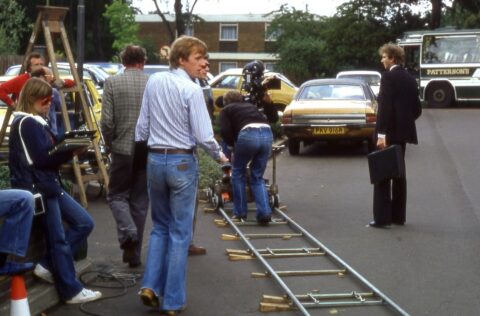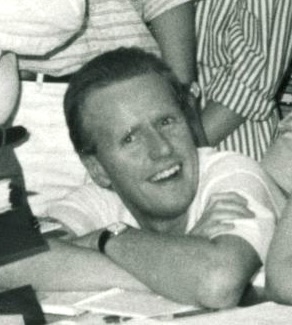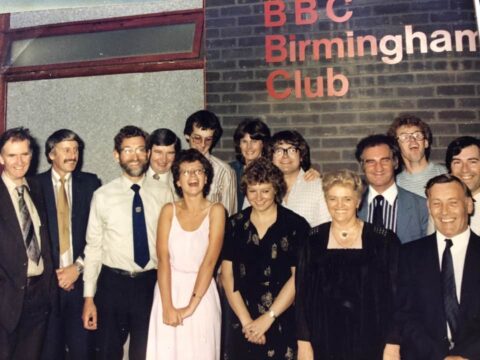
copyright resides with the original holder, no reproduction without permission
This photo is from the opening of the new BBC Birmingham Club circa 1982. The original club at Pebble Mill was on the second floor of the office block. That become programme offices when the new Club building was built across the bridge over the Bourne Brook.
The photo includes:
Phil Sidey, Phil Thickett, cameraman (back row striped shirt), Gail Everett, PA (nee Herbert, back row, to the right of Sue), Brian Johnson next to Gail, Freddie Foster right, Stuart Miller (striped shirt), Peter Skinner, Assistant Accountant (extreme right middle row) Keith Jones, Building Engineering Services Manager, Colin Spears, Sue Robinson (front pink dress), Lesley Sleigh next to Sue.
Julie Hill added the following memory on the Pebble Mill Facebook page:
“Ah such happy memories of the BBC Club! I used to take the Minutes of the Club meetings for extra money! Remember the crazy squirrel who used to attack us on the bridge? Highlights include watching harrier jump jet land on the grass and the whole building shook. And being tasked with stopping Larry Grayson drink. I failed….”


